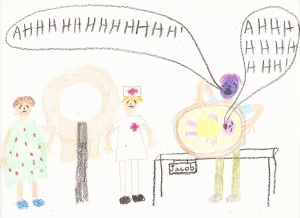I have big, and good, news: As of Feb. 21, I am employed.
Assuming it works out, it’s fantastic. It means an obvious means of self-support, and stability, and blah blah blah. You know what a job means.
This post really isn’t about that. I’m hoping for this to serve as a promise to myself to do what else I need to do.
As good as having a job is—and it is, I think—it’s not everything. I want to make sure that I’m not in as powerless a situation as I have been for a while.
The last full-time job I had really did a number on me. I knew it was a dead end, for some fairly frustrating reasons. It wasn’t paying enough to let me build much in the way of financial reserves, and it frankly sucked so much life out of me that it was hurting my efforts to get much of anything else going.
I finally did take the leap and get out, which was scary but wise. I’ve built a couple of good things since then: The citizen science book is a big one (and hey, how about that link to subtly point out that I’m on Amazon!), and I’ve also finished a first draft of another book, Dad’s Little Book of Rage. (I have several things to figure out on that one, including illustrations and publication options.) A few other things are in the hopper as well.
When I start my new job, I’ll be giving it my all. But I also want to make sure that I’ve got other things going so that if it doesn’t work out, I have options.
This site will be part of that. Soon, I’ll begin posting some of the citizen science information that I collected for the book here. Until then, though here’s a teaser from Rage. It’s an illustration that I did to accompany the first chapter. They childish crayon style is intentional. I have no idea if this is the direction that I’m going to go, but it’s certainly under consideration.
Watch for more!

